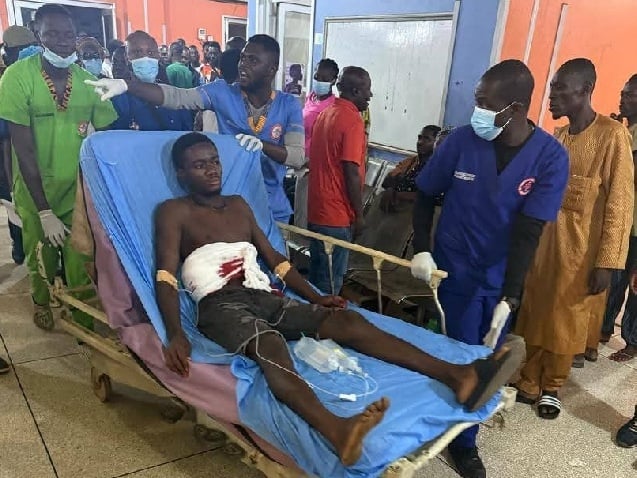The “Thank You Tour” organized by the New Patriotic Party (NPP) on April 29, 2025, was intended as a gesture of gratitude towards their loyal supporters in Kumasi Bantama. However, the event descended into chaos and violence, exposing underlying tensions and raising concerns about the methods employed in political mobilization. The presence of Kennedy Agyapong, a prominent NPP figure and former presidential aspirant, drew a significant crowd, including students from Unity Hall at the Kwame Nkrumah University of Science and Technology (KNUST), who were reportedly mobilized for the occasion. This mobilization, coupled with allegations of uneven cash distribution, became the catalyst for the unfortunate incident that marred the event.
The distribution of money, allegedly by members of Agyapong’s team, introduced an element of contention into the gathering. While the promised amount was reportedly GH¢500 per student, claims emerged that some received considerably less. This discrepancy ignited a heated dispute among the students, quickly escalating from verbal exchanges to physical altercations. The situation spiraled out of control, culminating in a stabbing incident that left one student injured. The rapid deterioration from anticipation and excitement to anger and violence underscores the precarious nature of events involving large crowds and the potential for financial incentives to exacerbate existing tensions.
The stabbing incident brought the celebratory atmosphere to an abrupt halt. The victim, a student caught in the crossfire of the dispute, was immediately transported to the Komfo Anokye Teaching Hospital for medical attention. While the immediate focus shifted to the victim’s well-being, the incident left a cloud of uncertainty and concern over the event. The assailant, who reportedly fled the scene, became the subject of a police investigation, adding another layer of complexity to the aftermath of the disrupted event.
The incident at the NPP’s “Thank You Tour” highlights the potential risks associated with political rallies and the mobilization of youth, particularly when financial incentives are involved. The promise of monetary rewards can attract large crowds but also creates an environment susceptible to disputes and unrest if the distribution process is perceived as unfair or poorly managed. This incident underscores the need for meticulous planning and organization of political events, including crowd control measures and transparent distribution mechanisms to prevent similar occurrences in the future.
Furthermore, the event raises broader questions about the ethical implications of using financial incentives in political mobilization. While the practice is not uncommon, it can be argued that such inducements can compromise the genuine expression of political support and potentially lead to coercion or manipulation. The incident in Kumasi Bantama serves as a reminder of the importance of fostering a political environment where engagement is driven by genuine conviction rather than financial incentives, thereby promoting a more authentic and democratic process.
The NPP’s “Thank You Tour” in Kumasi Bantama, intended as a celebration of support, was tragically marred by violence. The incident, stemming from allegations of uneven cash distribution among mobilized students, underscores the potential dangers of incorporating financial incentives into political events. It highlights the need for meticulous planning, transparent processes, and robust crowd control measures to ensure the safety and security of participants. Moreover, it raises ethical questions about the practice of using money to mobilize political support and the potential for such practices to undermine the integrity of the democratic process. The incident serves as a valuable lesson for political parties and organizers, emphasizing the importance of responsible and ethical practices in political mobilization.














